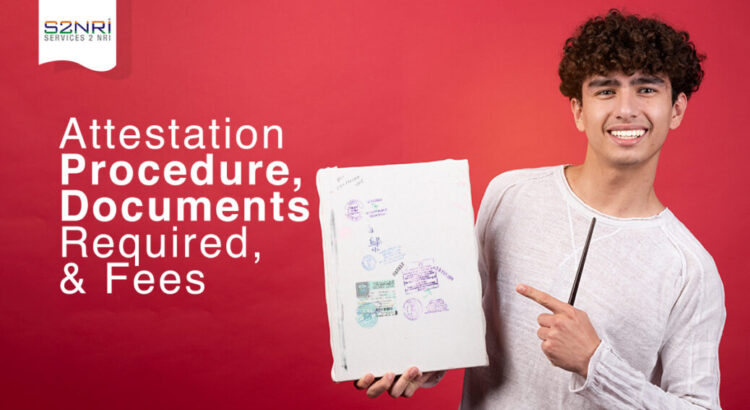Attestation refers to legalizing documents by competent authorities, especially the embassies and the ministry of external affairs. If you have attested documents, studying and residing abroad for work or any other purpose would be easy. It means that your struggle with formalities with a government, visa, or passport official will be lesser.
Here in this blog, we’re going to make this battle of document attestation easier to win for you. These apostille or attestation tips and processes will help you deal with challenges.
What is Apostille and Attestation?
As aforementioned, apostille is simply explained as the process of making a document officially acceptable overseas. This kind of legalization is termed as attestation.
When this very purpose is achieved through attestation by the Hague Convention (set up in 1961), it is termed as apostille. The applicant has to follow this process, especially when he or she is likely to visit the member country of this convention.
All in all, the objective is similar (which is to make documents legally acceptable), but the verification authorities differ.
Here, prospective applicants should be aware of the fact that their documents may or may not be verified in this phase because the state government and notary officer has already certified it before. These attestation services confirm that the document is legally valid and acceptable overseas.
Now that you know the difference, let’s figure out what documents should be presented to apostille.
Documents that Typically Require Apostille or Attestation
Here is the list of all important papers that can be required for apostille or attestation.
- Academic or educational certificates like diplomas, degrees, and school certificates
- Personal documents, such as birth certificates, marriage certificates, and other personal documents
- Commercial papers that can be company registration documents, trade licences, and other business documents
- Legal papers like power of attorney (POA), affidavits, and more
Here is how you can get these documents legalized.
The Procedure for Apostille and Attestation in India
Here is an overview of different levels of attestation/apostille.
- State Level Attestation
- Verification: This process is concerned with the authenticity and validity check of the enclosed documents. The respective state authorities, such as the Home Department or the Sub-Divisional Magistrate (SDM) of the area where you live, examine if the document is genuine.
- Notary Attestation: Notary public is a local officer in the court who deeply checks your documents to find if they are original.
- State Home Department Attestation: When the local authorities pass your documents in the authenticity check, the State Home Department verifies them.
2. Central Level Attestation
- MEA Attestation: The MEA stands for the Ministry of External Affairs, which is the apex authority to verify your documents. One thing to consider in this matter is that the request cannot be raised personally. You have to hire a recognized agent. These can be outsourcing companies or consultants who submit your documents and request for attestation.
- Apostille Certificate: The applicant should determine if he or she is likely to fly to the member country of the Hague Convention. If it’s the member country, the documents should be apostilled, but not attested. Its advantage is that no further process of legalization in the embassy will be required.
- Embassy Attestation (if required): This is the case when the country of intended use is not a member country of the Hague Convention. It means that you may have to get embassy or consulate attestation. Submit the documents to the respective embassy for attestation.
Fees for Apostille and Attestation
Let’s find out the fee structure that you all like to discover. You should understand that the amount to pay for apostille and attestation services may differ. Also, the type of document, which can be educational, non-educational, and commercial papers, also matters when it comes to paying out for these solutions.
The cost may be start from INR 1200 onwards per document for apostille. You may visit its official website to discover its actual prices.
Checklist of Required Supporting Documents
- Original document (educational, non-educational, and commercial) that you want to get legalized
- Photocopy of original document
- A photocopy of your passport
- Filled application form with necessary details
- Pay out the requisite fees
Timeframe
Generally, people get worried about when they can have their document attested. This part will have the answer. You can obtain any attested document in a week to a month from the State government. The central-level verification will again take a few days. Then comes the embassy attestation, which is separate from other authorities. It will again take a few days.
In the nutshell, the applicant should be prepared to raise a request at least three-four months before. This can help you in meeting the purpose within stipulated timeline
Conclusion
Apostille and Attestation, both, are similar and very crucial for validating your documents. Both of these processes make a document legalized, which means that the document is accepted internationally. The process in both cases will be similar, involving multiple steps at the state, central, and embassy levels. However, the process may change per country. The applicant should follow the procedure on various levels, including the state and central government level. Later, he or should reach out to the embassy for the final stamp of authority.











